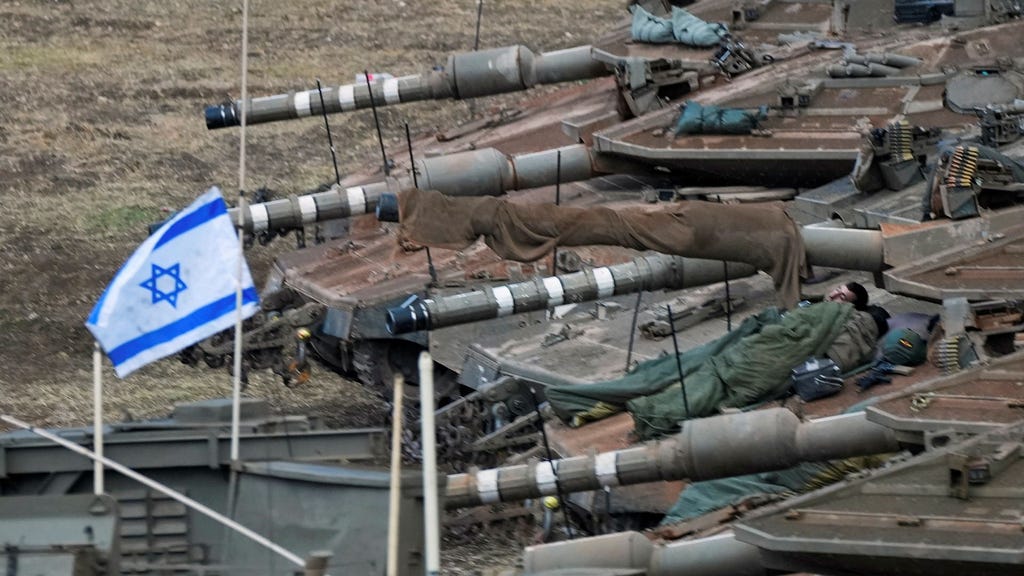The ongoing conflict in Gaza has prompted international scrutiny and condemnation of Israel, with some countries even halting imports of Israeli military equipment. However, this international pressure appears to have had minimal impact on the financial performance of Israel’s three major arms manufacturers: Elbit Systems, Rafael Advanced Defense Systems, and Israel Aerospace Industries. These companies, which collectively account for approximately 75% of Israel’s arms exports, experienced a significant 25% increase in sales in 2024, as reported by the Wall Street Journal. This surge in sales is attributed to both domestic demand, fueled by the ongoing conflict, and a growing international appetite for Israeli military technology, particularly its advanced air defense systems.
The increased global demand for Israeli weaponry stems in part from the effectiveness of its defense systems, most notably the Iron Dome, which successfully intercepted a significant number of projectiles launched during the spring attacks attributed to Iran. This successful demonstration of the Iron Dome’s capabilities has solidified its reputation as a highly effective defense system, attracting interest from countries facing similar security threats. Furthermore, Israel’s announcement of the impending deployment of the Iron Beam, a laser-based defense system designed to destroy incoming threats, has further piqued international interest in Israeli military technology. This system represents a significant advancement in defense capabilities and has the potential to revolutionize how countries protect themselves against aerial attacks.
The effectiveness of the Iron Dome system has been extensively tested and proven in real-world scenarios, successfully intercepting rockets and other projectiles launched by both Iran and Hezbollah. This proven track record in active conflict zones has significantly boosted confidence in the system’s capabilities, making it a highly sought-after defense solution for countries facing similar threats. The Iron Dome’s success has not only validated its technological prowess but has also showcased the adaptability and effectiveness of Israeli defense technology in countering a wide range of threats.
According to Pieter Wezeman, a researcher at the Stockholm International Peace Research Institute, the increased demand for Israeli arms is also driven by the inability of European and American manufacturers to meet the current global demand for weaponry. This supply gap has created an opportunity for Israeli manufacturers to fill the void and capitalize on the increased demand. Wezeman points out a certain irony in this situation, noting that many European countries critical of Israel’s actions are simultaneously eager to acquire its military technology. This underscores the pragmatic considerations driving arms procurement decisions, where security needs often outweigh political stances.
Despite the surge in demand and increased sales, the Israeli arms industry faces significant challenges. The ongoing conflict has placed immense pressure on domestic production, with manufacturers obligated to prioritize the needs of the Israeli military. This has led to increased production demands and operational challenges for the major arms manufacturers. To meet this heightened demand, companies have implemented extended shifts and are actively seeking to expand their workforce. The national industry organization estimates a need for an additional 6,000 employees to keep pace with the current production requirements.
In conclusion, the Israeli arms industry finds itself in a complex and paradoxical situation. While facing international criticism and even sanctions related to the conflict in Gaza, the industry simultaneously experiences a significant surge in demand for its products, both domestically and internationally. This demand is driven by several factors, including the proven effectiveness of systems like the Iron Dome, the promise of cutting-edge technologies like the Iron Beam, and the inability of other major arms producers to meet current global needs. However, meeting this increased demand presents significant challenges for the Israeli arms industry, forcing manufacturers to prioritize domestic needs and grapple with the logistical challenges of expanding production in a time of conflict. This complex interplay of political pressures, security concerns, and economic opportunities shapes the current landscape of the Israeli arms industry and raises crucial questions about the future of arms sales and international relations.














